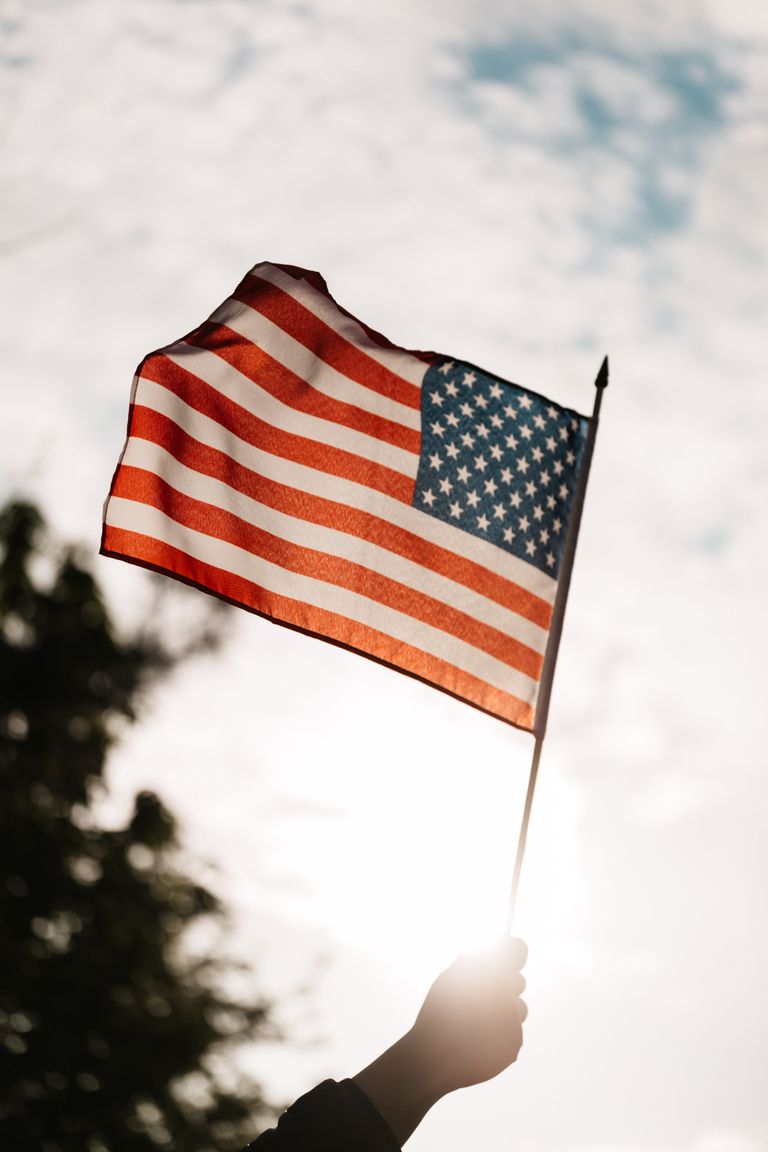In America, displaying the national flag in a church is a sign that we expect our government to fulfill its duty to protect our religious freedom. Not freedom of worship, not freedom of indoor sacramental observance, but freedom of religion, as it is exercised in ecclesiastical, domestic, and public spheres. If Americans want to keep a healthy disestablished Christianity, it seems particularly important to hold our government to this duty. The American flag promises to protect other religions besides Christianity, but it also does not promise less than the protection of Christianity.

A Jordanian minister said he “strongly” believed “that each church building should post the flag on the building and in the sanctuary.” He and his elders made the decision to do so “in order to show our loyalty as citizens to the country of Jordan. We believe that by doing so, we are a good example and testimony to others and also following the teachings of the Bible.” An Indonesian minister said that “when we display the flag in our church, it is not to express idolatry. We want to honor our national identity. It reminds us of our responsibilities as Christian citizens. It’s also a sign of gratitude for living in Indonesia.” A pastor from Nigeria noted that a flag was a “symbol of a country and flying it indicates the importance of the country.” He displayed the Nigerian flag in the church to “present the country perpetually before the Lord for his divine visitation and to also indicate that we love Nigeria dearly. We pray for her every Sunday service.”
This summer, Christianity Today ran an article about Protestant pastors' views on displaying national flags in sanctuaries and on church property. Many American evangelicals, especially white-collar evangelicals, increasingly view flags in churches as garish and idolatrous, signs of the benighted “Christian nationalism” they fear is sweeping through evangelicalism in the aftermath of Donald Trump’s presidency.

At The Gospel Coalition, Joe Carter has argued that “the symbols of the American nation don't have a place in the embassy of the kingdom of God.” “Such veneration for our country within our churches detracts from the glory of the gospel,” he wrote. If “we pledge allegiance to a flag in the house of God, we should question whether we aren’t skirting the edges of idolatry.”But according to the article in Christianity Today, global pastors disagree with the reflexive denunciation of flags as idolatrous. The piece included comments from pastors around the world. Arab ministers affirmed the presence of national flags in their churches. An Egyptian pastor said he agreed “with displaying the flag of my country in the church. The flag of my country only and not other countries, as it is a spiritual and not a political orientation.” The purpose of raising his flag, he argued, was to keep his heart united with his people in “prayer for the salvation of their souls. It’s to remember that I must stand in the gap for my people, that they may know the Lord and see the light of the gospel and to tell my country and my people how much I love them and pray for them.”
There may be prudential reasons to refrain from displaying national flags in churches. But the point stands that non-American and non-Western ministers do not see the presence of the national standard in their churches as inherently idolatrous or even particularly nationalistic. But in the United States, the hand-wringing over flags has gone from prudential consideration over something that is ultimately adiaphora to anathematizing anyone who places the flag in a church as a “Christian nationalist”—a term increasingly so imprecise as to be useless for any purpose other than to designate some socio-religious outgroup. Unfortunately, the plea to remove national symbols from religious spaces (and vice versa) is often a gnostic attempt to make Christianity a merely spiritual practice shorn of its outworkings in civil society.
In America, the custom of flags in churches can be traced to the Civil War. But the practice actually has much older roots in the medieval tradition of displaying heraldic shields in churches. These shields symbolized a nobleman’s protection of the church or denoted his support of the building’s construction. Tourists can still see the heraldic symbols of kings and nobles in Westminster Abbey and the Cathedral at Chartres. These shields signified medieval Christians' belief that the glory of the church reflected the glory of the state. An unhealthy church implied an unhealthy state. Heraldic shields declared to parishioners that the king would do his duty to protect the church against its enemies.

Shields and guidons, or pennants, gave way to modern heraldic devices, particularly flags, by the seventeenth century. Protestant Reformers in particular believed that magistrates and princes necessarily defended the rights and liberties of the church. They also did not believe it was possible to ever entirely separate church and state. As Brad Littlejohn has noted, Luther believed that the church in “its visible, institutional dimension, as a gathered congregation that must be organized, ritualized, and governed,” was part of the realm called “polity,” which in turn was “part of the sphere of human authority which it occupies in common with the more mundane concerns of the family and the civil magistrate.” John Calvin went so far as to give the state a type of instructive function; he said government was a gift of God that should edify the church. Conversely, the church offered prayers for the state in expectation that the magistrate would fulfill his divinely appointed duties. Thus a church can display the flag of the magistrate in good conscience. As the history of the practice indicates, a national flag in a church is not a sign of idolatry, but a reminder to the faithful to remember the specific magistrate we pray for, and what we rightfully expect from him.